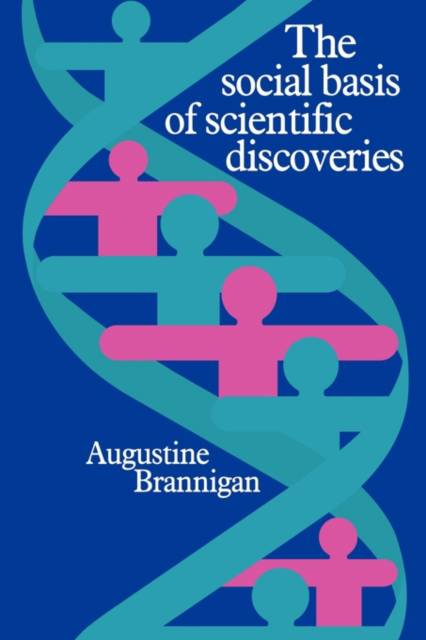
- Afhalen na 1 uur in een winkel met voorraad
- Gratis thuislevering in België vanaf € 30
- Ruim aanbod met 7 miljoen producten
- Afhalen na 1 uur in een winkel met voorraad
- Gratis thuislevering in België vanaf € 30
- Ruim aanbod met 7 miljoen producten
Zoeken
€ 60,95
+ 121 punten
Omschrijving
What constitutes a scientific discovery? How do discoveries happen and how are they recognised as such? These are questions of central concern to scientists and philosophers. In this book, Augustine Brannigan provides a critical examination of the major theories which have been devised to account for discoveries and innovations in science, and develops a fresh alternative. Dr Brannigan begins by arguing that most theories fall into one of two classes: mentalistic theories, which describe how ideas come into the mind, and cultural theories, which describe how they 'mature' in a particular culture. His account reveals a series of empirical and methodological problems that make these existing models untenable and he proposes as an alternative a sociological approach, which draws attention not to what makes discoveries happen, but to the processes whereby certain achievements are recognised and labelled as discoveries. This approach is illustrated in detail with a number of important scientific cases. The book throws light not only on the conventional character of discoveries but also on the folk elements in popular theories about discovery, such as genius, gestalt switch and simultaneous invention.
Specificaties
Betrokkenen
- Auteur(s):
- Uitgeverij:
Inhoud
- Aantal bladzijden:
- 228
- Taal:
- Engels
Eigenschappen
- Productcode (EAN):
- 9780521281638
- Verschijningsdatum:
- 30/10/1981
- Uitvoering:
- Paperback
- Formaat:
- Trade paperback (VS)
- Afmetingen:
- 152 mm x 229 mm
- Gewicht:
- 340 g

Alleen bij Standaard Boekhandel
+ 121 punten op je klantenkaart van Standaard Boekhandel
Beoordelingen
We publiceren alleen reviews die voldoen aan de voorwaarden voor reviews. Bekijk onze voorwaarden voor reviews.











